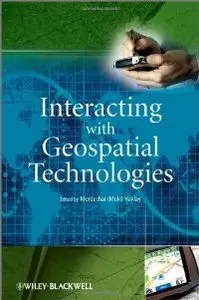Geospatial technology is an ever-evolving field that combines geography, data science, and technology to analyze spatial data. With the rapid growth in industries like urban planning, environmental science, and logistics, the demand for skilled professionals in geospatial technology has surged. This article explores the educational pathways and career opportunities in geospatial technology, providing guidance for aspiring professionals.
Understanding Geospatial Technology
Geospatial technology involves the collection, analysis, and interpretation of data related to the earth’s surface. Tools such as Geographic Information Systems (GIS), Global Positioning Systems (GPS), and remote sensing are fundamental components of this field. These technologies help solve real-world problems, from disaster management to resource exploration.
Educational Pathways in Geospatial Technology
Pursuing a career in geospatial technology requires a solid educational foundation. Here are the key educational pathways:
1. Undergraduate Degrees
A common entry point is a bachelor’s degree in geography, environmental science, computer science, or a specialized geospatial technology program. These programs introduce students to GIS, cartography, spatial analysis, and remote sensing.
2. Graduate Studies
For advanced knowledge and research opportunities, many students opt for master’s or doctoral degrees in geospatial sciences or related disciplines. Graduate programs often emphasize data modeling, advanced analytics, and application development.
3. Certifications and Online Courses
In addition to formal degrees, industry-recognized certifications and online courses offer flexible ways to gain specific skills. Certifications like Esri’s ArcGIS certification can significantly boost employability.
Career Opportunities in Geospatial Technology
The career landscape for geospatial professionals is diverse and expanding. Here are some promising roles:
1. GIS Analyst/Technician
GIS analysts collect and interpret spatial data, creating maps and reports that support decision-making in urban planning, environmental conservation, and transportation.
2. Remote Sensing Specialist
These professionals analyze satellite or aerial imagery to monitor environmental changes, agricultural health, or disaster impact.
3. Cartographer
Cartographers design and produce maps, combining artistic skills with spatial data to communicate complex information visually.
4. Geospatial Data Scientist
By applying data science techniques to geospatial data, these experts extract insights to optimize business operations, from supply chain logistics to marketing.
The Future of Educational Pathways and Career Opportunities in Geospatial Technology
As technology advances, educational pathways and career opportunities in geospatial technology will continue to grow. Emerging fields like drone mapping, smart cities, and autonomous vehicles depend heavily on geospatial expertise. This trend makes it an exciting and promising field for students and professionals alike.


